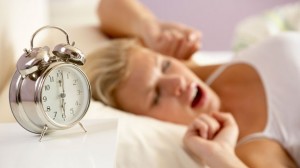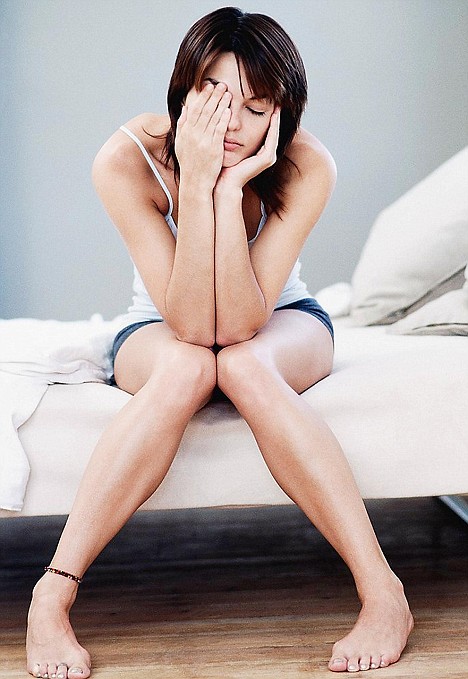Sometimes just having a hard time getting to sleep may be a sign or a deeper concern. Here is a great look at some sleep anxiety remedies.
Over 40 million Americans suffer from some form of sleep anxiety. The inability to get a thorough night of rest can lead to physical, mental, and emotional problems. Clinically referred to as insomnia, characteristics include:
- trouble falling asleep
- difficulty staying asleep
- waking up throughout the night
- waking up too early
- still feeling tired or unrefreshed after sleeping
It may be difficult to establish what came first – the anxiety or the sleep anxiety. Every day anxiety leads you to sleep less. Your desire to sleep causes you even more anxiety, and the cycle continues.
Excessive anxiety results in surges of the hormones cortisol and adrenaline. This results in an increased heartbeat, making it difficult to relax and fall asleep. The key is to recognize the sources of your anxiety, minimize them, and if possible, rid yourself of the anxiety completely.
Outside sources of anxiety
Perhaps you are working in a hostile work environment. Maybe your home is cluttered. In cases that you may not be able to control, think optimistically. Find the positive things that you like and focus on them. If it helps, think of a “worst case scenario,” and realize that that will more than likely not happen. If you can control the source, such as a messy home, take the time to remedy it. Some people may prefer to spend a full day towards the issue while others may need to spend a few hours here and there to complete it. Find which method works for you – the last thing you want to do is allow your resolution to become another source of anxiety. From there, recognize your progress and realize how much better you will feel once you reach your goal.
For some, an exact source of anxiety may not be easy to pinpoint. For others, even the tiniest inconvenience can cause great anxiety. Although there are many prescription drugs available to treat sleep anxiety, many people can see great success in small changes that can be easily accomplished. These methods are without the risk of drug side effects and are often free.
Meditate
Some people can do quite well by taking the time to perform some conscious relaxation. Meditation can be as simple as sitting in a quiet room, closing your eyes, relaxing your muscles, and slowly inhaling and exhaling. Some like to have soothing sounds in the background, such as falling rain or rain forest sounds. Meditation can also be helpful during an episode of anxiety. It is important to realize your feelings of anxiety and to deal with them immediately. Meditation can be performed in bed as well, right before sleeping. Conscious relaxation and imagining a calm place or the achievement of a goal that you have set for yourself can help you sleep.
Exercise
You do not need a gym membership for this one. Even a simple 15-minute walk several times a week would be extremely beneficial. For those suffering from chronic sleep anxiety, exercise should be a daily commitment. A brisk walk, jog, or hike will increase heart rate and blood flow. Exercise can also be fun, such as a bicycle ride with the family around the lake. Additionally, exercise is a form of meditation. The quiet, concentration, and attention to breathing will help release excess energy and relax muscles, allowing you to sleep more soundly.
Diet
Processed foods and take-out meals are just as unhealthy for the body as they are for the mind. Foods that are ridden with sodium, excessive sugar, and preservatives often are not fulfilling and devoid of the vitamins and nutrients that we need to function. Sleep is as much a function as are walking and breathing. Pay attention to your diet and try to eat balanced meals of whole, fresh foods, with a particular attention to fruits, vegetables, and whole grains.
There is no sure-fire way to solve your sleep anxiety. Just as there are many causes to it, there are many solutions to it. The key to resolving this issue is to take a multi-faceted approach. Find out what is bothering you and from there, try many methods to fix it. Progress is always an achievement, even if it is taken in small steps.
Original Article Here
********
Nathan says: I hope this was helpful to you, would you recommend any other remedies. Have you ever dealt with sleep anxiety? How did you overcome it?
Also, be sure to check us out on
Facebook and
Twitter!
********










 Not many of us have ever connected sleep with our belly fat. But if the current researches are anything to go by, there is a huge link between fatigue, insomnia and irregular hours of sleep that contribute to an increase in
Not many of us have ever connected sleep with our belly fat. But if the current researches are anything to go by, there is a huge link between fatigue, insomnia and irregular hours of sleep that contribute to an increase in 








 When retired NFL star Junior Seau
When retired NFL star Junior Seau 










